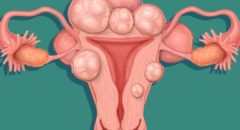
Uterine fibroids are benign tumors that grow inside the uterus and can be as small as a pea or as large as a cantaloupe. According to the Mayo Clinic, up to 75 percent of women develop uterine fibroids, but most are unaware of them because they have no symptoms.
Furthermore, Black women’s chances of having the tumors, of having larger tumors, and having them at a younger age are greater than women of other racial groups. While there is a variety of treatment available, most of them involve medications or invasive procedures.
However, some women with uterine fibroids turn to more holistic remedies to help with their condition. In fact, some have found that changing their diet may be the secret to reducing the size of their fibroids.
Diet can play a key role in balancing out the hormones in the body that could be growing these fibroids. Below are some changes to diet that may be able to help manage uterine fibroids.
Cut out caffeine and alcohol
Studies have shown that caffeine and alcohol can play a role in growing fibroids. This due to the fact these substances can increase blood pressure. Heightened blood pressure has a strong link to fibroids.
If caffeine is difficult to cut out of your diet, try getting caffeine from green tea instead of coffee or energy drinks. Green tea contains antioxidants that can help with inflammation and lower estrogen levels.
Eat a low-fat, vegetarian diet
Consuming red meat and processed foods can make fibroids worse, according to recent studies. For this reason, health professionals recommend a low-fat vegetarian diet. If making a change to a vegetarian diet is challenging, try starting to incorporate more fruits and vegetables incrementally, while simultaneously lowering your intake of meat.
Meatless Mondays, or avoiding consumption for a few days a week, are a good first step in transitioning into a vegetarian diet.








